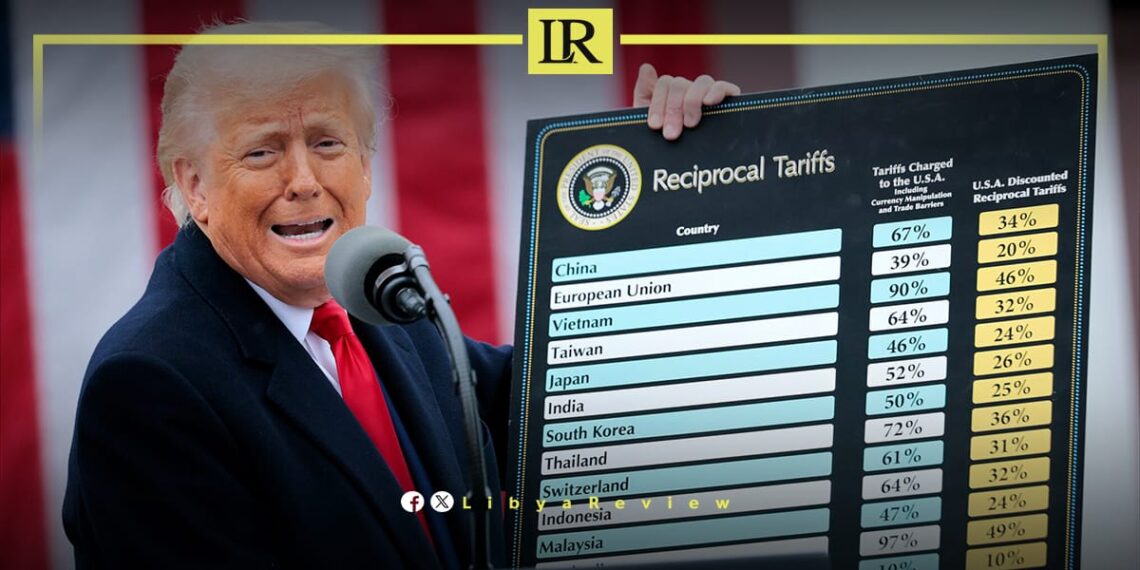The United States is considering imposing new tariffs of 31% on Libyan imports starting April 9, which could lead to losses exceeding $1.57 billion and threaten a near-total collapse of trade between the two nations, according to Italy’s Nova news agency.
The agency detailed that the move would disastrously impact the crude oil sector, which constitutes 99.9% of Libya’s total exports to America. In 2023, these exports were valued at $1.57 billion, with $1.56 billion attributed solely to crude oil.
In a surprising move, President Donald Trump announced today, Wednesday, the imposition of retaliatory tariffs on dozens of countries, including China, India, the European Union, and several Arab nations such as Libya (31%), Jordan (20%), and Egypt, Saudi Arabia, and the UAE (10%).
The list also includes tariffs of 34% on China, 20% on the European Union, 46% on Vietnam, 32% on Taiwan, 24% on Japan, 10% on the United Kingdom, and 25% on South Korea.
During a speech on what he described as “Liberation Day,” Trump stated he was about to sign an executive order concerning these tariffs, emphasizing that these measures are aimed at “bringing wealth back to America.”
Libya has been in chaos since a NATO-backed uprising toppled longtime leader Muammar Gaddafi in 2011. The county has for years been split between rival administrations.
Libya’s economy, heavily reliant on oil, has suffered due to the ongoing conflict. The instability has led to fluctuations in oil production and prices, impacting the global oil market and Libya’s economy.
The conflict has led to a significant humanitarian crisis in Libya, with thousands of people killed, and many more displaced. Migrants and refugees using Libya as a transit point to Europe have also faced dire conditions.
The planned elections for December 2021 were delayed due to disagreements over election laws and the eligibility of certain candidates. This delay has raised concerns about the feasibility of a peaceful political transition.
Despite the ceasefire, security remains a significant concern with sporadic fighting and the presence of mercenaries and foreign fighters. The unification of the military and the removal of foreign forces are crucial challenges.


